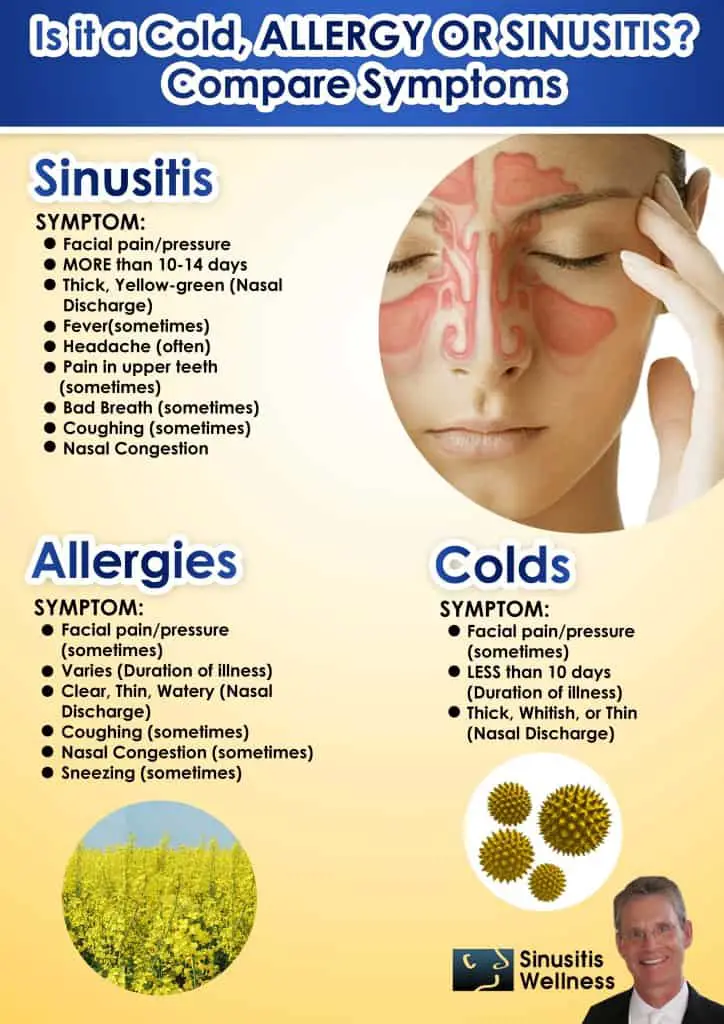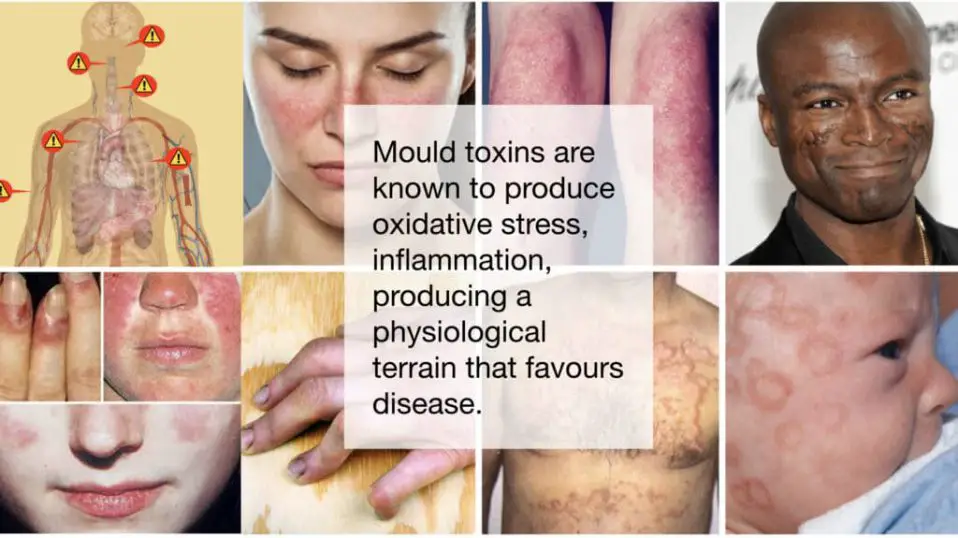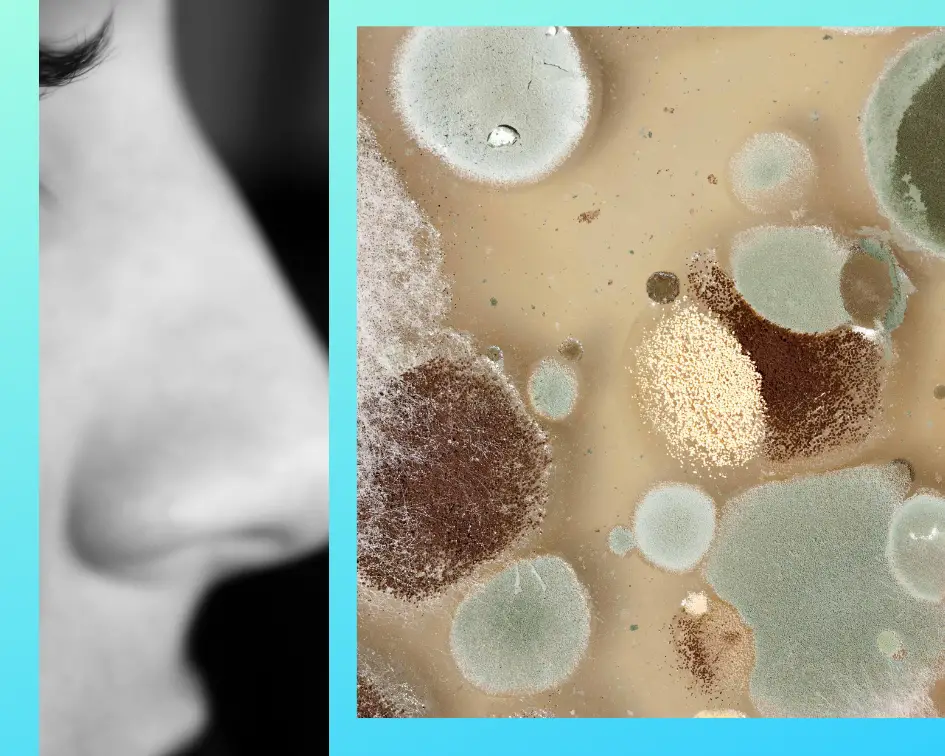How Are Mold Allergies And Exposure Diagnosed
There are no proven tests that show when or where you may have been exposed to mold. However, your doctor may check for mold allergies by reviewing your symptoms and performing one of the following tests:
- Blood test. Your doctor takes a blood sample and then sends it to a laboratory to measure the number of certain antibodies, which can indicate your immune systems sensitivity to different mold species.
- Skin prick test. Your doctor takes small amounts of mold and applies it to your skin using a tiny needle. Your skin will break out in bumps, a rash, or hives if youre allergic to that type of mold.
Dr Ray’s All Natural Sinus Relief Program
N-ACETYL CYSTEINE
This acts as a natural mucolytic similar to mucinex
600 mg one capsule daily
90 caps\free shipping 33.00
HEALTHY START SYSTEM
Probiotics strengthen the immune system
3 capsules daily on an empty stomach.
3 Bottles
1000 mg vitamin C two capsules daily
250 caps
This is an extremely important part of this program
10,000 IU one daily
MORE THINGS THAT HELP
How Can Mold Affect My Health
Many molds can cause health effects. Molds produce allergens, irritants and,sometimes, toxins that may cause adverse reactions in humans. A reaction tomold depends on how much a person is exposed to, the age of the person and thepersons sensitivities or allergies. The same amount of mold may causehealth effects in one person, but not in another.
Exposure to mold can cause a variety of symptoms. Sensitive people who havetouched or inhaled mold or mold spores may have allergic reactions such as arunny nose, sneezing, nasal congestion, watery eyes, skin rash and itching. Molds can trigger asthma attacks in people who are allergic tomolds, causing wheezing, chest tightness and shortness of breath. A diseaselike pneumonia may also develop after exposure to mold, but this is uncommon.
Infectious diseases from molds can occur in people with weakened immunesystems, such as those who are immune-compromised or immune-suppressed fromdrug treatment. Some types of mold are known to cause infections inimmune-compromised people. Such infections can affect the skin, eyes, lungs orother organs. These are considered opportunistic infections that usually do notaffect healthy people.
Also Check: Clean Mold Off Boat Seats
What Is A Mold Allergy
If you have an allergy that occurs over several seasons, you may be allergic to the spores of molds or other fungi. Molds live everywhere. Upsetting a mold source can send the spores into the air.
Mold and mildew are fungi. They are different from plants or animals in how they reproduce and grow. The seeds, called spores, travel through the air. Some spores spread in dry, windy weather. Others spread with the fog or dew when humidity is high.
Inhaling the spores causes allergic reactions in some people. Allergic symptoms from fungus spores are most common from July to early fall. But fungi grow in many places, both indoors and outside, so allergic reactions can occur year round.
Although there are many types of molds, only a few dozen cause allergic reactions. Many molds grow on rotting logs and fallen leaves, in compost piles and on grasses and grains. Unlike pollens, molds do not die with the first killing frost. Most outdoor molds become inactive during the winter. In the spring they grow on plants killed by the cold. Indoors, fungi grow in damp areas. They can often be found in the bathroom, kitchen or basement.
Treating Sinus Congestion Caused By Mold

While sinusitis caused by the common cold virus generally gets better without medical treatment, just like a cold does, sometimes sinusitis does require medical care. Bacterial infections may require antibiotics. Fungal infections may require prescription medication, as well. If allergies to mold or other substances are causing sinusitis, immunotherapy may help.
Over-the-counter remedies can relieve some symptoms of sinus infections. For instance, decongestants help relieve sinus congestion. Saline nasal spray can help clear clogged nasal passages and soothe inflamed mucous membranes. Over-the-counter pain relievers like acetaminophen or ibuprofen can relieve sinus pain.
Sinusitis caused by mold will almost certainly not resolve completely, though, even with medical treatment, as long as you continue to be exposed to mold. Symptoms may abate temporarily but will probably return and may even worsen. Youll need to have your home thoroughly cleansed of all traces of mold if mold is causing or contributing to your sinus problems.
Recommended Reading: Cleaning Mold Off Leather Jackets
Talking To Your Doctor About Hearing Loss
Age-related hearing loss generally occurs gradually over time so people are not always aware they are losing their hearing, at least initially. Loss of hearing related to ear infections usually develops much more quickly and is usually quite apparent. In either case, you should talk to your doctor if you notice any of the following:
- You cant hear as well as you used to
- You have to ask people to repeat things frequently
- You have to turn the television up louder than usual
- You have trouble following a conversation if there is a lot of background noise
- You have trouble understanding people when talking on the phone
- You experience a ringing sensation in one or both ears, or hear buzzing, hissing, roaring or clicking sounds in one or both ears
- People ask you if youre having trouble hearing, comment on the volume of your television, or tell you that you are speaking too loudly
Your doctor will ask you questions about your hearing and ask about any other symptoms you may be experiencing. Your doctor will also examine your ears with an otoscope. Be sure to tell your doctor about any other symptoms you have been experiencing, including pain in your ears, headache, fever, sinus pain or pressure, a stuffy nose, a cough, dizziness or fatigue. Also let your doctor know if youve been exposed to mold.
Dangers Of Black Mold On Health
Toxins produced by black mold often cause inflammation of the mucous membranes in the body. Black mold can trigger inflammation, or allergies, which can trigger sinus inflammation. Inflammation is the immune system’s response to an allergen or foreign substance entering the body. Continual exposure to black mold stimulates the immune response, causing inflammation of the body’s mucous membranes, leading to conditions such as sinus infections.
Additionally, breathing in mold spores can cause mold to grow inside areas such as the sinuses. These situations typically happen most often in immuno-compromised individuals. They are, however, difficult to get rid of and require fungal sinusitis testing for detection. Fungal sinusitis cannot be treated by antibiotics, so surgery is sometimes the only option to eradicate the problem.
You May Like: How To Remove Black Mold From Shower Grout
Is Mold Causing Your Sinus Problems Or Other Symptoms
Finding out if you have a mold problem is not as easy as you might think. Mold can grow in all sorts of hard-to-reach places, like inside walls, above ceiling tiles, underneath carpets and floorboards, and inside ventilation systems. You might be aware of a mold problem in your bathroom or basement, but mold spreads easily throughout the home and if you have mold in one area, you might have mold in other places as well where its just not visible.
We recommend calling in a professional mold tester, so you can find out the extent of your mold problem and locate all mold in the home. Most professional mold testers are engineers, and they are trained to test both the air and various surfaces in your home for mold, making sure they locate all areas affected by mold growth. If they find mold in your home, they can give you valuable advice about the mold removal process. To find certified mold testers in your area, just follow this link.
Sinus Congestionfrom Mold Exposure
Sinus congestion, also referred to as sinusitis or a sinus infection, is one of many potential health effects of mold exposure. It causes the sinuses, or nasal passages, to become swollen and inflamed. This interferes with drainage, so you feel stuffed up. Other symptoms include headache, facial tenderness or pain, trouble breathing through your nose, coughing, earache, and fever.
Recommended Reading: How To Clean Mold Between Pavers
When Should You See A Doctor About Your Sinus Infection
Most sinus infections stay viral and resolve on their own. But if home remedies arent helping, if your drainage turns yellow or green, or if your sinus infection sticks around for more than a week or 10 days, it might be time to give your ENT doctor a call.
Still have more questions about whether your sinus infection is contagious? Not sure if youre dealing with a viral or bacterial infection? Contact ENT Associates of Lubbock today, and we can help you figure out your next steps!
How Can I Be Exposed To Mold
People are exposed to molds every day, usually by touching or breathingthem. Because molds naturally exist outdoors and indoors, living in a totallymold-free environment is practically impossible. As molds grow, spores can bereleased into the air where they can be easily inhaled. People who inhale largenumbers of spores may get sick. Possible health concerns are an importantreason to prevent mold growth and to clean up molds in indoor environments.
You May Like: How To Get Rid Of Airborne Mold In House
How Is Mold Lymph Node Swelling Treated
The treatment, of course, will depend on the specific type of infection youre experiencing. Lymph nodes may be swollen due to mold-related pneumonia, bronchitis, sinusitis, eye infections, skin infections or other mold-related conditions. Often, antibiotics and/or antifungal medications are prescribed.
In addition to receiving medical care, youll need to have the mold removed from your home. If you continue to be exposed to mold, lymph node swelling will not decrease and your condition may even worsen despite medical treatment.
If you are suffering from mold-related health problems, it is recommended that you arrange for someone to handle the mold removal for you so that you are not further exposed to mold that may exacerbate your condition. We suggest scheduling a free consultation with an experienced mold removal professional to discuss your needs. Even if you plan to handle the mold removal yourself, you can benefit from some free expert advice, including safety tips to help prevent inadvertent exposure to mold during the cleanup process. Follow the link to find qualified professionals offering free consultations in your area.
Mold Around The House

While antihistamines can address many of the symptoms of a mold allergy, they are often not a sufficient standalone response to mold. Antihistamines can have sedating effects on users and adversely interact with other prescription and over-the-counter medications, so it is best not to rely on them entirely. Instead, after identifying signs and symptoms of a mold allergy, work to reduce the presence of mold in your home. This process often involves optimizing air filtration systems, cleaning bathrooms regularly, and making basement living spaces as hypoallergenic as possible by limiting porous surfaces, such as carpeting, where moisture and attendant mold can build up. While it is impossible to eliminate mold exposure, especially outdoors, you can significantly mitigate mold exposure within the home.
You May Like: How To Clean Black Mold In Shower Grout
Can I Prevent Fungal Sinusitis
You may not be able to prevent a fungal sinus infection. If youre at a higher risk for fungal sinus infections, talk to your provider. They may recommend regular checkups to monitor your health and treat infections quickly. Talk to your provider if you:
- Have had a fungal sinus infection in the past.
- Have a health condition that weakens your immune system.
- Take immunosuppressant drugs or are getting chemotherapy treatments for cancer.
Antifungal Therapy Directed At The Sinuses
In a study of treatment of patients with an intranasal antifungal agent , Ponikau et al. showed significant improvements in several clinical parameters in CRS patients . The authors concluded that reducing the amount of fungal antigen with the antifungal therapy led to clinical improvements. Varied results from studies of CRS treatments may be due to the fact that CRS can result from infection by bacteria, invasive mold, mold colonization in the presence of biofilms, the extent of sinus involvement or a combination of factors . Surgical debridement is also a common treatment in CRS . Identifying specific fungal organisms in CRS caused by mold requires specific fungal staining methods to identify hyphae in sinus specimens or identification of mold by Q-PCR . Treatment of fungal CRS may require the use of oral antifungals, as well as intranasal sprays with antifungal activity, depending upon the improvement of individual patient condition . In addition, biofilms, antifungal shelf-life and antifungal resistance must be considered as other variables in effectiveness of treatment .
Read Also: What Causes Mold On Ceiling In Bathroom
Indoor Microbes And Their Fragments
Mycotoxins produced by several species of mold have been identified in water-damaged indoor environments . They have been detected in the sera, urine and tissues of individuals with illness associated with exposure to microbes in these contaminated environments . Whereas species of Aspergillus and Penicillium have been demonstrated in the nasal cavity and sinuses of individuals with CRS, accounting for the probable source of AT and OTA, the detection of MT appears to be somewhat of an enigma. Trichoderma has been found in the sinuses and does produce MT . However, S. chartarum does not germinate and grow in animal tissues . Furthermore, S. chartarum has not been recovered from patients with CRS either by culture or Q-PCR, although it is present in the dust of homes with affected occupants . Since, S. chartarum does not readily shed its spores, what are the possible explanations for the detection of its mycotoxins in humans exposed to damp-indoor environments? We will briefly review the literature regarding the release of ultrafine particles by colonies of mold commonly present in damp-indoor spaces.
Signs Of Mold Infestation
Most people dont notice smalls amounts of mold growth or just ignore it. The tiniest patches of mold can spread rapidly and require immediate attention. Visible mold is a sign that you have a much bigger problem hidden
away from view. The spores appear in spots or thread like and can be black, grayish, brown, green, or even white, sometimes even appear orange, pink or purple.
Mold spores can grow on wood, drywall, fiberboard, paper, dust, and lint, particularly in areas that may have recently flooded or suffered other types of water damage.
Read Also: Marine 31 Mildew Remover Ingredients
Who Is At Risk For Mold Toxicity
While anyone can become ill from exposure to mold and its mycotoxins, some are more susceptible than others.
People who already have allergies or asthma can be more severely affected by mold toxicity than those who do not have allergies.
Also, people who are already ill, have immune suppression, or who have respiratory illnesses are more likely to have noticeable and intense symptoms resulting from mold exposure.
Symptoms of mold toxicity are relatively persistent and should not be ignored.
How Is Mold Lymph Node Swelling Diagnosed
Swollen lymph nodes are a symptom of infection or other illness. You dont actually treat the swollen lymph nodes. You have to treat the infection or other illness. Of course, before you can treat it, you have to figure out what it is.
If your lymph nodes are swollen, you probably have other symptoms, as well. If youre suffering from a mold-related illness, symptoms may include coughing, sneezing, a runny nose, a sore throat, a headache, discomfort in your chest, or difficulty breathing. You can read more about symptoms of mold-related health problems here. See your doctor and describe all the symptoms you are experiencing. If youve been exposed to mold in the home, let your doctor know that, as well.
Your doctor will examine you and take a thorough history. A physical examination will include palpating your lymph nodes. He or she may do some tests, such as blood work, a throat culture or a urine analysis . If you are coughing anything up, your doctor may take a sample of that for analysis. Your doctor may order a chest x-ray, too.
You May Like: How To Remove Mold From Wooden Cutting Board
Mold Symptoms And Ear Infection
Here is an example of how the first problem occurs. When mold enters the body, typically by inhalation, it is attacked by white blood cells via a specific cytokine called interleukin. The interleukin kills the mold but the white blood cells engaged in the immune response often burst and release caustic, major basic proteins . This acid-like protein burns pits into the sinus lining. The pits become a trap for bacteria which causes infection, pain, and swelling in the sinuses. The pitting keeps the conditions ripe for the immediate return of the infection. Antibiotics that prevent fluid build-up do not treat the condition that causes the pitting they merely provide a temporary relief. The pits will not begin to heal until your body stops having to fight against mold.
Another way cytokines are a problem is that they circulate throughout the body causing a systemic immune reaction creating symptoms such as: muscle and joint pain, fibromyalgia, fatigue, bloating, gas, diarrhea, memory and concentration problems, vessel inflammation, dizziness, headaches, ear infections, and many others problems.
My Feet Developed Fungus

My feet developed some kind of fungus. I usually walked barefoot around the house. Janet bought me a foot bath and tea tree oil, but it didnt help. Probably because I continued to go barefoot. Richard didnt get it, likely because he always wore house slippers. At the time, none of us realized that the carpet had mold/fungus in it.
Read Also: Visual Contrast Sensitivity Test Mold
